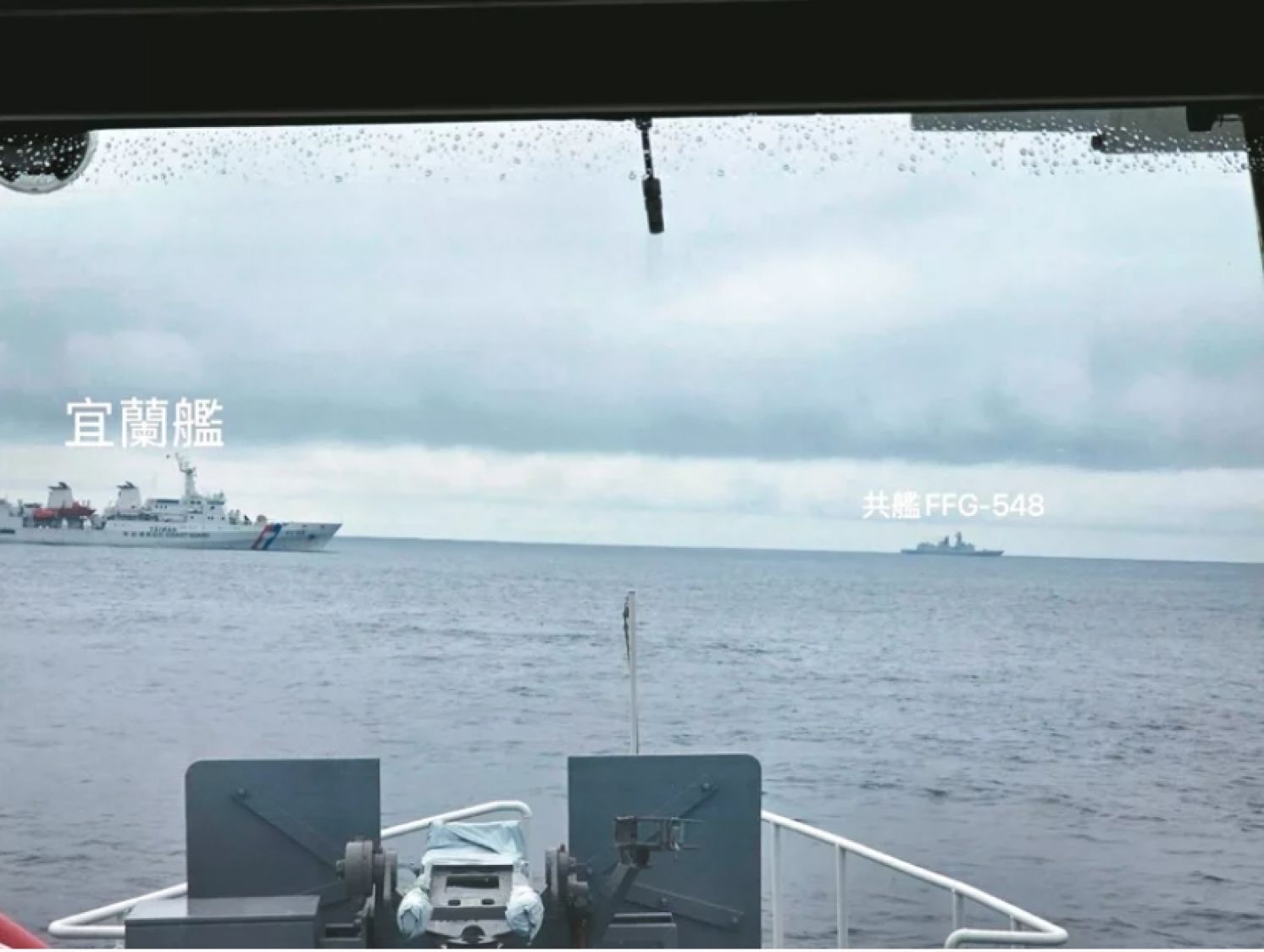
Lai's "Two-State Theory" Angered China
United Daily News Editorial, May 24, 2024
On President Lai Ching-te’s fourth day in office, the Eastern Theater Command of the People's Liberation Army (PLA) announced the exercises, code named "Joint Sword-2024A", to combat the arrogance of Taiwan independence and deter the interference and intervention of external forces. President Lai's inaugural address featuring a “Two-State Theory” immediately provoked military exercises encircling Taiwan by mainland China. If President Lai cannot seek cross-strait dialogue and reconciliation to ensure the safety of the Taiwan Strait, does he really intend to lead Taiwan onto the battlefield like the Russia-Ukraine or Israel-Hamas wars.
The focus of the military exercises included drills on joint air and sea defense patrols, seizing integrated control of the battlefield, and hitting key targets with precision, as well as warships and aircrafts arriving on or off the island for war patrols, integrating operations within and outside the island chain, and testing the real-world capabilities of joint operations; in addition to the full siege of Taiwan from the north, east, and south, the scope of the exercises was extended to include the surrounding waters of Kinmen and Matsu as well as Wuqiu and Dongyin. The PLA has vowed to deploy aircrafts, ships, missiles, rockets, and other "cross-sea killers" to "rain down arrows to clear Taiwan independence.”
Compared to the military exercises following the visit by then-Speaker Nancy Pelosi of the U.S. House of Representatives to Taiwan in August 2022 and President Tsai Ing-wen's meeting with her successor Kevin McCarthy in April 2023, these current exercises have clearly expanded in scale and depth. Judging by the scope, subjects, and evaluation content of the exercises, it is indeed what experts refer to as a drill simulating various stages of an armed invasion of Taiwan. Furthermore, "Joint Sword - 2024A" with the designation "A" suggests that there may be subsequent waves of exercises, potentially labeled B, C, and so on.
Given the perilous situation in the Taiwan Strait, President Lai's inaugural speech references to Taiwan’s "pursuing peaceful co-prosperity" and being a "helmsman of world peace" appear even more ironic. In fact, ever since Lai was elected president, cross-strait tensions have gradually increased, with frequent diplomatic and military pressures from mainland China. However, Chinese President Xi Jinping has still set a tone for peaceful unification with Taiwan and extended an olive branch through the Ma-Xi second meeting and visits by KMT legislators to the mainland before May 20. Nonetheless, President Lai’s new "Two-State Theory" effectively cut off Xi’s olive branch, and Communist China’s reaction has been swift and intense as well.
Most noteworthy was the attitude and role of the United States. Before May 20, the United States had publicly endorsed Lai, praising his responsible rhetoric following his election, indicating that Lai’s responses to questions had already passed muster in Washington. After May 20, the U.S. also remained silent on the sensitive content of President Lai’s inaugural speech. However, Lai's new "Two-State Theory" is believed to subtly align with the recent U.S. interpretation of United Nations Resolution No. 2758, which implies an "undetermined status of Taiwan." Could the United States be permitting Lai to operate within this gray zone to advance their strategic goals, effectively taking another slice of the pie? Nevertheless, it would pose a challenge for Communist China to passively acknowledge this.
In recent years, the United States and China have collaborated to establish guardrails and draw red lines. This year, following Taiwan's presidential election, the United States has been actively engaging with both the mainland and Taiwan, urging restraint on both sides. After May 20, with the mainland still incensed, the U.S. Department of Defense also urged China not to escalate the situation. Nevertheless, the mainland Chinese military soon announced its exercises targeting Taiwan. If these drills are part of a U.S.-China co-management of Taiwan, it evokes memories of the political spectacle when the United States orchestrated a tense scenario with Israel and Iran engaging in retaliatory airstrikes. The United States might be allowing President Lai to step on the red lines, followed by Chinese military exercises as a form of venting. Although this carries a high risk of spiraling out of control, it hasn't completely overstepped the guardrails. However, if the United States cannot rein in President Lai ’s pragmatic push for Taiwan independence, it certainly cannot prevent the mainland’s military reprisals. Whether the United States is being deceived or is complicit, the people of Taiwan can only pray for providential protection.
Reactions in Taiwan society yesterday were telling: The stock market held steady, and the populace remained relatively composed. Though the political fallout from the mainland Chinese military exercises might be waning, the underlying danger is escalating. the Lai administration should not place all its bets on "U.S. support" as a matter of chance.
From: https://udn.com/news/story/7338/7984772?from=udn-catelistnews_ch2